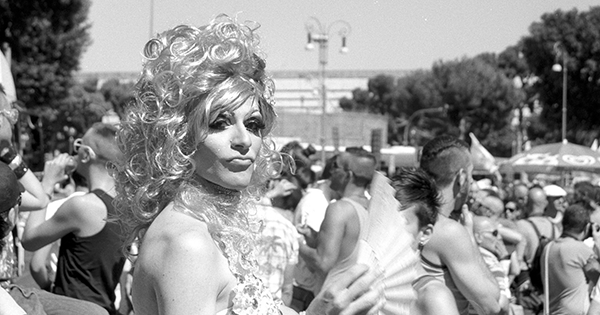
Nobody knows how many of us there are. The most widely cited statistic is 0.3 percent—that is, 3 out of every 1,000 people in the United States are transgender. I don’t for a second accept that; for every one of us willing to identify ourselves on a survey, how many are unwilling? Or don’t know yet, but will someday? Or reject the term “transgender”? The U.S. census hasn’t yet tried to count us, nor could it begin to.
What’s clear is that we are ubiquitous—in every stratum of every society the world over—and we have always been here. We only look new. The difference nowadays is that, due to growing visibility and medical access, millions of trans people are manifesting what in previous times remained buried.
That’s one narrative. There’s another, more commonly cisgender view. (“Cisgender,” or “cis,” for those not hip to the new gender-speak, denotes those who identify as the gender assigned to them at birth by a doctor. It’s a sloppy word, though sometimes useful.) Anyhow, to many cisgender people, transgender people are popping up out of nowhere. It’s true in a sense: Can you think of any minority at any time in history that has materialized as suddenly as we have? The closest comparison might be the gay community, where people are simultaneously “queer” and “here,” although the existence of gays and lesbians, who are now counted in the census, is well-known, and their visibility has been a long time coming.
Like gay people, who some think can be “converted” to being straight people, there is a hard-driving campaign to convert trans people “back” to being cis people. (You can find a creepy petition from one of these fellows among the comments below my first column in this series.) Their view is that the source of all these trans people must be—what else?—cis people. It’s a zombie narrative: cis people are turning into trans people everywhere, and you can never predict who’s next. I mean, have you seen some of these shocking hormone update photos? It’s like Invasion of the Body Snatchers.
“Doug is transgendering,” I cringingly overheard a friend say on the phone to her son after she first saw me as Diana. There is no such word as transgendering—let’s hope there never will be. Transgender points to an indelible aspect of certain people, even if those people never wind up transitioning. But this friend defines me according to the sensationalized terms of the zombie narrative, commenting freely on me “changing genders,” my “past as a man,” my “efforts to become a woman.” Her view is completely out of sync with a lived reality in which I have always been, and will remain, a trans female person. Bodies can change, gender identity can’t. If it could, believe me, nobody would be doing this.

